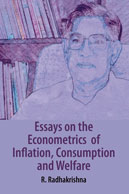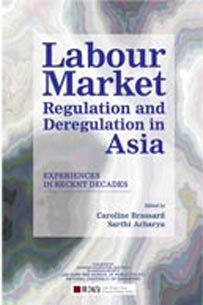New Releases...
Download Catalogue...
Download Excel Data
Download PDF Catalogue
You will get a Excel file with detail about catalogue.
You will get PDF file with detail about catalogue.
Detailed info...
Labour Market Regulation and Deregulation in Asia
Experiencea In Recent Decades
Caroline Brassard‚ Sarthi Acharya
About the Book
This edited volume successfully highlights the nature of labour market regulation and deregulation process that some Asian countries have experienced in recent decades. The understanding that emerges would help develop an interface of growth/development and its sustainability with welfare-distribution of gains. Based on individual country experiences, the book suggests ways to put in place, labour market regulations to foster fairer labour practices in certain countries in Asia.
About the Author(s) / Editor(s)
<p><strong>Caroline Brassard</strong> has been teaching Development Economics and Statistics at the Lee Kuan Yew School of Public Policy, at the National University of Singapore since 2002. She obtained a B.A. in Mathematics-Economics at the University of Montreal, an M.A. in Economics at the University of Toronto, and a Ph.D. in Economics from the School of Oriental and African Studies at the University of London. She began her career as an economist for the Government of Ontario and quickly moved into the field of international development. Over the next 10 years, she under-took research and long-term consultancy work on poverty reduction strategies for several international non-governmental organisations, including UNICEF in Madagascar, CARE in Bangladesh and Save the Children in Vietnam. Caroline taught empirical analysis techniques for business and economics at the University of London, and obtained a professional accreditation for teaching in higher education. Her current research focuses on the impact of the transitional process towards a market economy in Vietnam, on income distribution, poverty and inequality and more recently, on the development strategy being implemented in Bhutan.</p>
<p> </p>
<p><br />
<strong>Sarthi Acharya</strong> is currently Director, Institute of Development Studies, Jaipur (India). He has earlier been on the faculty of the Tata Institute of Social Sciences, Bombay. He has been a visiting scholar at Boston University in the US, the Institute of Social Studies in the Netherlands, and the Agricultural University at Bogor (Indonesia). He has also been Research Director at the Cambodia Development Resource Institute, and Employment Specialist with the International Labour Organization. He has been a consultant with the World Bank, Asian Development Bank, UN-ESCAP, UNDP and the Mauritius Research Council as well as to various agencies of the Government of India. He has published extensively in academic and professional forums. His main areas of interest are labour and development studies.</p>
Contributors
<p><strong>Mukul G. Asher </strong>teaches Applied Public Sector Economics at the Lee Kuan Yew School of Public Policy, at the National University of Singapore. Mukul Asher has taught or researched in Australia, Malaysia, Sweden, India and the USA. He has held visiting positions at several institutions, including with the Fiscal Affairs Department of The International Monetary Fund, and Harvard Institute for International Development. He specialises in public finances of developing countries, social security arrangements in Asia and economic cooperation among nations. He has published several books and numerous articles in international journals. His most recent book (with Avijit Gupta) is entitled Environment and Developing World, published by John Wiley, London 1998. He has acted as a consultant to the World Bank, the Asian Development Bank, UN-ESCAP, Oxford Analytica, the Institute of Southeast Asian Studies (Singapore), the Malaysian Institute of Economic Research, Singapore’s Trade Development Board and others. He was a member of the ASEAN-India Expert Group on Trade and Investment Relations in 1994–95.</p>
<p> <br />
<br />
<strong>Sean Cooney</strong> is Senior Lecturer and Associate Director (Taiwan) in the Faculty of Law at the University of Melbourne. He is also a member of the Asian Law Centre. He has studied at the University of Melbourne, Columbia University and National Taiwan University. He also spent several years as a lawyer practising mainly in the areas of employment and administrative law. His research interests are international and comparative labour law, with a focus on Asia, and Chinese law. He is currently working on new approaches to improving international working standards and is participating in an ongoing research project involving leading employment law scholars from Japan, Europe and the United States. He has published articles in major refereed law journals in the United States, China and Australia, such as the Comparative Labour Law and Policy Journal and Bijiaofa Yanjiu. He currently teaches Contracts, Chinese Law, Democracy at Work, and Issues in Trans-national Labour Regulations.</p>
<p> <br />
</p>
<p><strong>Suzanne Jamieson</strong> is a Fellow of the Senate of the University, an advocate for the National Pay Equity Coalition before the NSW Industrial Relations Commission and Australian Industrial Relations Commission, and the Director of the Celtic Studies Foundation, University of Sydney. She is a member of the University of Sydney Staffing Committee (a committee of the Academic Board) and was an Executive Member, University of Sydney branch, National Tertiary Education Union until 1999. In 1998, she was appointed to the Operations Review Committee of the Independent Commission against Corruption, the NSW Anti-discrimination Board and Deputy Chair of the NSW Nurses Tribunal. Her main research areas are in equity in the workplace and she is currently involved in a major project, which look at international comparisons in the area of gender, occupational health and safety law. In addition, she has an extraordinary involvement within the University and the broader community.</p>
<p> <br />
<br />
<br />
<strong>Lucita Lazo</strong> is the Regional Programme Director of UNIFEM East and Southeast Asia Regional Office. She has extensive experience working in the UN system, as an independent consultant, and more recently for the government of the Philippines. Prior to joining UNIFEM in April 2003, Lucita was Director General of the Technical Education and Skills Development Authority then Under-Secretary of the Department of Labour and Employment in Manila. From 1988 to 1996 she was the Chief Technical Officer of ILO’s Regional Office for Asia and the Pacific. Lucy has an M.A. in Psychology from the University of the Philippines, where she taught for 10 years. </p>
<p> <br />
<br />
</p>
<p><strong>Chris Manning </strong>is the Head of Indonesia Project and Senior Fellow, in the Division of Economics, Research School of Pacific Studies, at The Australian National University (ANU), Canberra. He has been at ANU for the past 13 years, and prior to that spent extended periods of teaching and research in Indonesia at Gadjah Mada University in Yogyakarta in the 1970s and 1980s, where he worked in the Population Studies Centre and Faculty of Economics, and at the Agricultural Research Institute in Bogor. He also worked for six years in Asian Studies and the Population Studies Programme at Flinders University (1985–1991). More recently (2001–2002) he spent 16 months working as a consultant to the National Planning Agency, Bappenas in Jakarta on leave from the ANU and funded by USAID. His specialist academic interest includes labour economics and labour policy, with a regional interest in East Asia and particularly Indonesia. He has recently been working on international labour migration issues in East and Southeast Asia, especially with reference to the movement of temporary workers within the region.</p>
<p> </p>
<p> </p>
<p> </p>
<p><strong>Pundarik Mukhopadhaya</strong> is a lecturer at the Department of Economics at Macquarie University. He obtained an honours and a master’s degree in economics from Delhi University in India and a Ph.D. from the University of New South Wales in Australia. His current research interests include income distribution before and after the crisis in Indonesia; gender disparity in income; World Bank grants and development in third world countries; regional disparity in Australia; a stochastic dominance analysis and health, inequality and economic development in East Asian economies.</p>
<p> <br />
<br />
<strong>Haruka Urata</strong> is a Japanese pension expert and consultant at Towers Perrin Tokyo. He is an advisory member of the Japan Pension Research Council, an organisation bringing together researchers of various fields in order to generate debate on key issues of retirement benefits and corporate pensions. His work focuses on retirement benefits and corporate pensions in the period of drastic change, following the burst of the Japanese economic bubble.</p>
<p> <br />
<br />
<strong>Noriyuki Takayama</strong> teaches Economics and Social Security at Hitotsubashi University. Prior to joining Hitotsubashi University, he has worked as Assistant Professor in Economics at Musashi University, Tokyo. He is currently engaged in micro-data analyses of Japan’s ageing and declining population. His particular interest is in the economics of pensions. He is also the Director General of a five-year research project on intergenerational equity that began in October 2000, the main theme of which is setting options for fair distribution of well-being among different generations. He has been a consultant on social security pensions for the World Bank, the European Commission, the Organisation for Economic Cooperation and Development, the Asian Development Bank and the International Monetary Fund.</p>
Print Brochure...
Print as it is
Customised brochure
You will get a printout of what you see on your screen under 'Detailed Info'(Uneditable).
You will have the opportunity to edit the text and adjust the extent to fit on A4 size sheet or more accordingly as you desire. Plus, you can download the edited/customised Brochure or simply print it (CTRL + P).


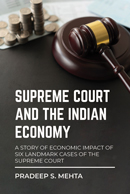



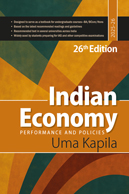
-web-194.jpg)
-front.jpg)
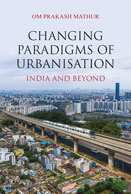






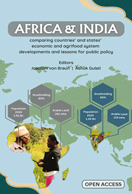
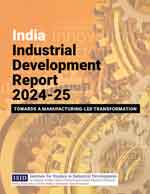
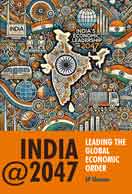
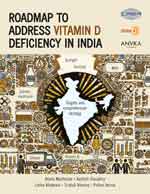
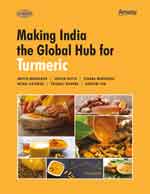
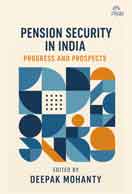
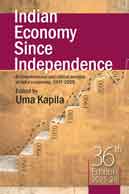
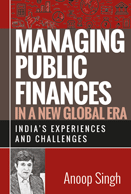

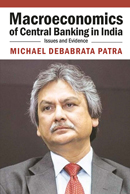

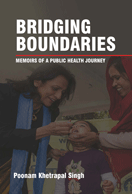

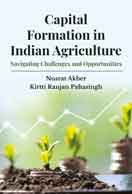











-COVER-web-194.jpg)





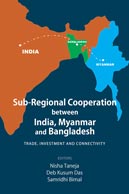






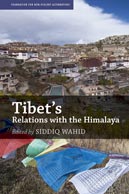



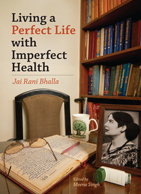












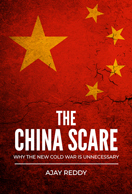
.jpg)






